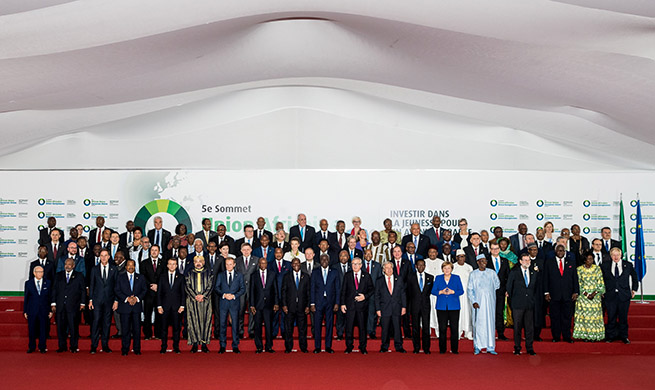by Muhammad Tahir
ISLAMABAD, Nov. 29 (Xinhua) -- A three-week siege of the Pakistani capital Islamabad peacefully ended earlier this week after a religious group signed a deal with the government of Prime Minister Shahid Khaqan Abbasi.
The confrontation also led to the resignation of the country's Law Minister Zahid Hamid.
The group "Tehrik Labaik Ya Rasoolullah," or TLYR, started sit-in at the edge of Islamabad on Nov. 6 as a protest against the alleged change of the law regarding the "finality of the Prophethood."
Under the Pakistani law, those who do not believe in the finality of Prophethood are non-Muslim.
While the deal was hailed across the country, it also evoked some criticism after the government accepted the group's demand for the resignation of the law minister, who had been accused by the group of introducing changes in the law.
Under the six-point deal, the government agreed to withdraw all cases, including terrorism charges, against the activists of the TLYR, for attacking and injuring nearly 100 policemen, torching police vans, and damaging a government-run Metro Bus station.
Critics and political analysts are of the view that the government has "surrendered" to the pressure of religious groups.
Government ministers, however, defended the agreement and insisted the negotiated settlement was the best option to peacefully end the sit-in, which had badly affected life in the twin-cities of Islamabad and Rawalpindi.
Media reports said the protest caused the losses of nearly 4 billion rupees (38 million U.S. dollars) to the national exchequer as the government would bear the cost of the police and personnel of other law enforcement agencies.
The agreement, which was brokered with the help of the security establishment, also says the government will pay for the repair of all damages to the properties caused by the protesters.
Zahid Hussain, a senior columnist and political analyst, argues that the agreement with the religious group has set a negative precedent as it would encourage other extremist groups to adopt similar way of protest to exert pressure on the government for acceptance of their illegal demands.
"I think the government signed the agreement on the dotted lines of the religious group. This shows the failure of the government as it has set a bad tradition as now other groups would follow the same procedure to implement their demands," Hussain told Xinhua.
Security expert Sayed Nazeer Momand was critical at the way the religious group staged sit-in to mount pressure on the government through closing roads and disrupting the lives of hundreds of thousands of common people.
"The government should not given more time to the TLYR to continue its protest at a key location to lay a siege of the country's capital city. The government even could not implement the court's order to disperse the protesters and the police action was aborted one," Momand, a retied army brigadier, told Xinhua on Wednesday.
He said the government should have adopted an effective strategy at early stage of the sit-in to block the arrival of more supporters of the protesters. However, he said a relatively peaceful settlement of the issue was a good point on the part of the government and the military.

















